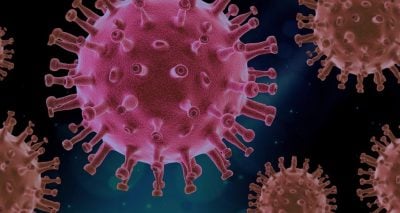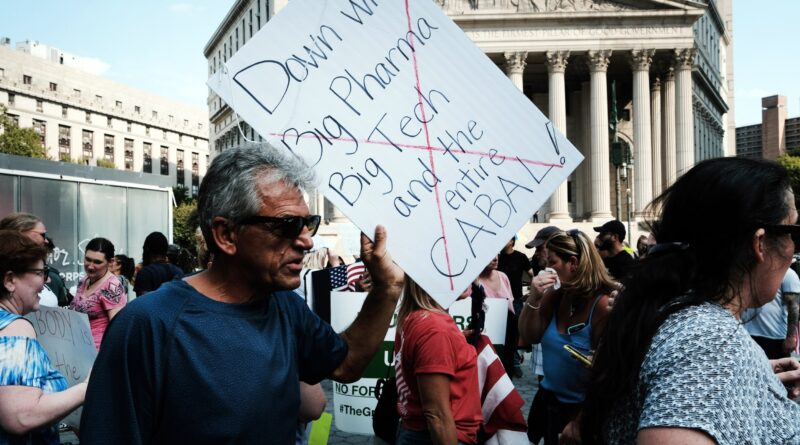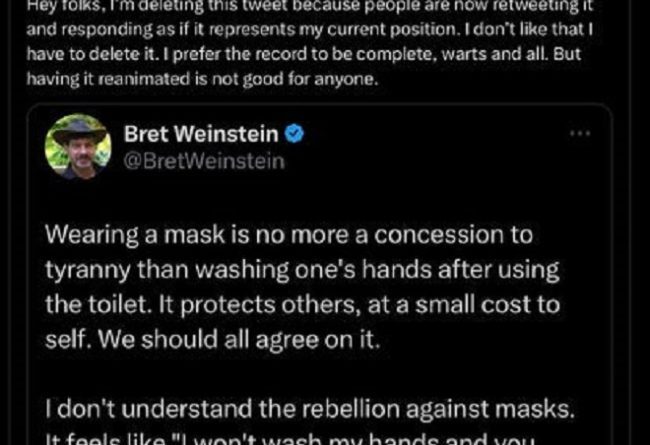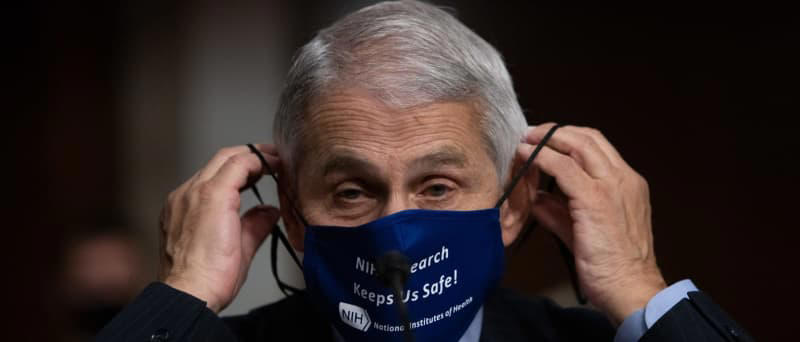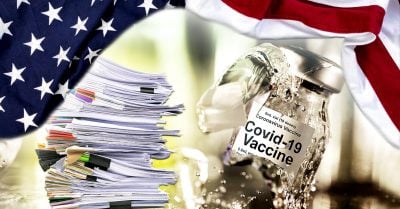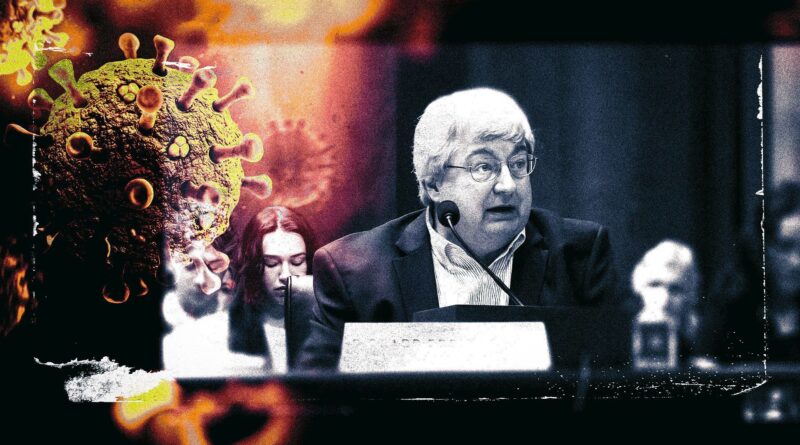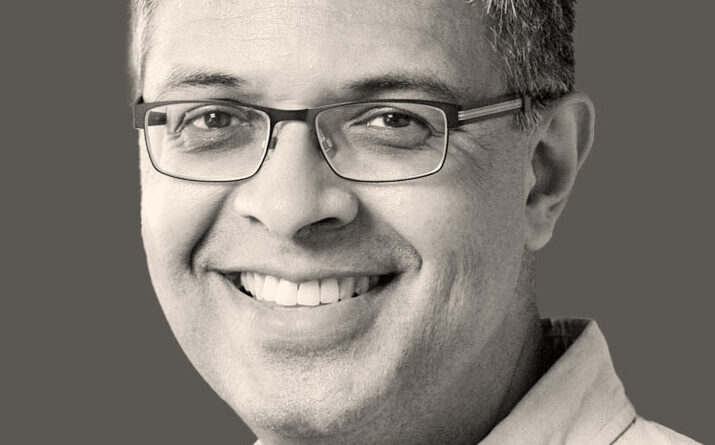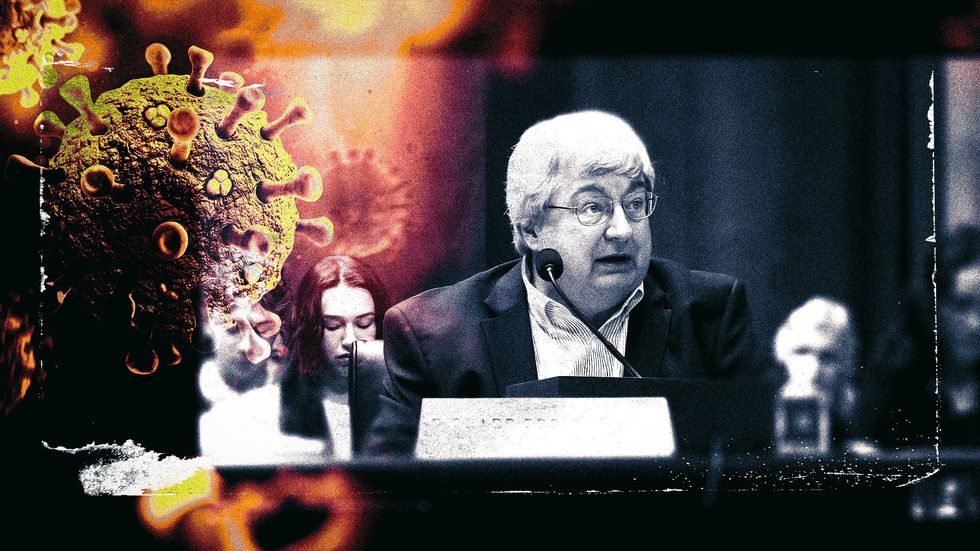
This is Part 3 of a series. To read Part 1 click here. To read Part 2 click here.
Dr. Richard Ebright first found out that a SARS-like respiratory illness was spreading in Wuhan, China, on January 3, 2020.
As he opened his computer that day, he found a report on his ProMed email that described several cases of SARS-like pneumonia circulating in Wuhan.
This, in and of itself, was not new news. There had been reports circulating within the medical research community about this SARS-like illness in Wuhan for weeks.
The key new piece of information, according to the email, was that inside sources in China were saying that this new illness was being caused by a SARS-related coronavirus.
To Ebright, it was a pretty close call at the time as to which was more likely: a lab leak or a zoonotic origin.
Ebright’s first thought when he read this news was simple: Contrary to the claims of the Chinese government, this virus would obviously be transmissible from person to person.
His second thought, following immediately after, was equally simple: There was also obviously a possibility that this virus had escaped from one of the laboratories in Wuhan, including the the Wuhan Institute of Virology.
“These laboratories had been the subject of discussion for five years prior to that,” Ebright told Blaze News.
Indeed, Ebright’s thought cannot have been unique. Everyone in the virology research community knew about the famous work that had been done in Wuhan by Dr. Shi, in collaboration with Dr. Ralph Baric, over the past several years.
So when a coronavirus that had genetic signatures that made it “(potentially) look engineered,” in the words of Dr. Kristian Andersen, Ebright’s concern about the possibility that the virus had escaped from the lab must have been shared by virtually everyone in the small group of people who were following the early stages of the COVID-19 pandemic closely.
To Ebright, it was a pretty close call at the time as to which was more likely: a lab leak or a zoonotic origin. There simply was not enough evidence to make a concrete prediction either way.
He would soon watch, with very great disappointment, as a number of scientists who also did not have enough information to make a confident prediction nonetheless claimed that they did.
What came next was not a furious scramble to make sure that the world was safe but rather a furious scramble to make sure the world never found out about how close they came to suffering an H5N1 pandemic.
But while the whole sordid tale of the furious effort to suppress the lab-leak theory unfolded, America may have narrowly missed falling victim to another, far more deadly pandemic.
This one would not have started in Wuhan, China, but rather here at home, in Madison, Wisconsin.
++++++++++++++
You may recall that in part 1 of this series, one of the first studies to force gain-of-function research into the consciousness of the American public was a study conducted by a team led by virologist Yoshihiro Kawaoka at the University of Wisconsin-Madison that caused the highly lethal H5N1 to be transmissible in ferrets.
At the time, the New York Times editorial board spoke for probably over 99% of the people in the world when it said, rather sensibly, that the virus “ought to be destroyed.”
Unfortunately, the researchers at the University of Wisconsin did not take the New York Times’ advice, and the world suffered an extremely close call as a result.
It turned out, however, that no such on-site quarantine room existed.
As the virus that would come to be known as SARS-CoV-2 was circulating quietly in Wuhan, hidden from the world by the Chinese authorities, a team of researchers was studying the H5N1 virus in a lab in Wisconsin.
Unbeknownst to the world, on December 3, 2019, one of the researchers studying this virus in the BSL-3 containment lab suffered a breach in his containment suit when the hose that connected his breathing apparatus came loose from his suit.
As detailed by investigative reporter Alison Young in her book “Pandora’s Gamble: Lab Leaks, Pandemics, and a World at Risk,” what came next was not a furious scramble to make sure that the world was safe but rather a furious scramble to make sure the world never found out about how close they came to suffering an H5N1 pandemic.
++++++++++++++
According to Young, incredibly, this was not even the first time this lab had suffered a breach of containment of this incredibly dangerous virus.
Back in 2013, in a moment of carelessness, one of Kawaoka’s assistants had inadvertently punctured his finger with a needle that was contaminated with the mutant H5N1 strain.
In response to the immense public scrutiny the ferret research had brought upon the NIH and upon Kawaoka’s lab in particular, the University of Wisconsin had promised the NIH that there were a number of fail-safes in place to ensure that even in the event of an accident, the public would be safe.
There is no way to ascertain how many members of the unsuspecting public the worker might have made contact with on the way to his home.
One of those fail-safes was supposed to be an on-site quarantine room that would house any worker who inadvertently suffered a breach.
It turned out, however, that no such on-site quarantine room existed.
Kawaoka’s team called the CDC for advice and were told that the breach should be treated as a “serious exposure.” The Wisconsin Department of Health told the University that the researcher should quarantine in isolation for 7-10 days and take regular Tamiflu.
The university followed this order — sort of. Instead of keeping the worker on site, officials instead sent him home to quarantine in place.
There is no way to ascertain how many members of the unsuspecting public the worker might have made contact with on the way to his home.
Nor is there any indication of whether his home was a stand-alone structure or apartment building, whether the researcher lived alone or with a family, or any number of other variables that would have made even quarantining at home a worthless measure.
++++++++++++++
When the NIH, which had been funding this research, learned what had been done with the exposed worker, officials were furious and demanded an explanation from the university.
The university determined, apparently on its own initiative, that the breach of the worker’s containment suit was not a “significant exposure” and memory-holed the whole affair until officials belatedly filed, two full months later, a report with the NIH’s Office of Science Policy.
In response, the university actually had the temerity to complain about the requirement for an on-site quarantine facility. Officials complained that forcing staff to quarantine on site or in a hospital room would make them less likely to report breaches because they would be afraid of an unpleasant quarantine experience.
The NIH, in a rare moment of sensibleness, rejected these facially ludicrous complaints and threatened to pull all funding for the project if the university did not install a quarantine solution that was in keeping with the original promises to the NIH. The university folded and agreed to the NIH’s demands.
So when the second breach occurred in December 2019, Kawaoka and his team cannot have been honestly confused about what should have been done, which was to quarantine the worker on site for 7-10 days in isolation.
Instead, while the worker was initially placed in quarantine, a lab compliance worker released the worker from quarantine early.
According to Young’s investigation, it could not be determined whether “early” meant “after a few minutes” or “a few minutes early.” The university refused to respond to any questions regarding whether it consulted with anyone from the CDC, NIH, or Wisconsin Health Department before releasing the individual.
What is clear, however, is that the university did not notify the NIH, as officials were in theory required to do, after the breach occurred.
The university determined, apparently on its own initiative, that the breach of the worker’s containment suit was not a “significant exposure” and memory-holed the whole affair until officials belatedly filed, two full months later, a report with the NIH’s Office of Science Policy.
The events of the first six months of 2020 would change forever the way the world viewed Anthony Fauci.
When Young asked the NIH what were the consequences of failing to report this breach, she was told that the university was, effectively, given a talking-to. According to Young, the NIH “reminded the institution about its reporting responsibilities” and “noted that it should have been immediately reported to OSP.”
The university denied that this conversation ever happened. And at that point, given the state of the world in February 2020, the NIH moved on to other things.
And as we all sped into a world that would be forever changed by the COVID-19 pandemic, this sad affair constituted a pretty good representative sample of what the NIH considered to be acceptable handling of a potential biosafety outbreak.
++++++++++++++
The events of the first six months of 2020 would change forever the way the world viewed Anthony Fauci. A man who had previously been a powerful but obscure bureaucrat who was viewed with distrust by many liberals because of his association with the Bush-Cheney biodefense program would instantly become a sainted hero of liberals.
The lens through which the world knew Richard Ebright would also soon change — but more on that later.
Given the state of knowledge at the time, no reasonable person could have disagreed with this assessment, certainly not with any level of certainty.
But as news of the unfolding SARS outbreak in China began to spread, it’s important to remember, from part 1 of this series, that Ebright had been, for two decades, a go-to source for mainstream media publications for comment on biosafety. From Reuters to the Associated Press to the Washington Post to the New York Times, when biosafety was in the news, Ebright was more often than not quoted.
On January 21, 2020, the Chinese government was forced to make an admission that Ebright had predicted with certainty would be coming: that the virus was spreading person-to-person and that the outbreak had begun in the same area as some of the world’s foremost coronavirus research labs.
This revelation turned the story from news that was largely contained to the biological research community to front-page news, of immediate concern to the general public.
And so when the media started to write about the new virus, they called Ebright, as they had done so often before. Not just mainstream media sources, but also publications that are more influential within the scientific community, including Science magazine.
Ebright’s initial reaction was measured and even. The article noted that Ebright had a “long history of raising red flags about studies with dangerous pathogens” but noted his belief that “the 2019-nCoV data are ‘consistent with entry into the human population as either a natural accident or a laboratory accident.’”
Given the state of knowledge at the time, no reasonable person could have disagreed with this assessment, certainly not with any level of certainty.
The third was the revelation that the closest known genetic relative to SARS-CoV-2, RaTG13, had been isolated and was in the collection at the Wuhan Institute of Virology.
At this point, almost nothing was known about the origin of the outbreak, Chinese authorities were not being forthcoming, and it was definitely notable that the outbreak appears to have occurred in the same area as one of the world’s foremost coronavirus research labs.
Ebright told Blaze News that if pressed, at the time, he would have viewed the lab-leak scenario as slightly more likely, but there simply was not enough data to make a firm conclusion one way or another.
According to Ebright, at the time, there were only three data points from which one could draw a conclusion.
The first was the location of the outbreak itself. As noted by Ebright, “the outbreak emerged in a location that was more than 800 miles from the closest colonies of bats thought to harbor this type of virus, but right on the doorstep of laboratories that had been the subject of discussion for five years as having conducted research on coronaviruses that might start a pandemic outbreak.”
The second was the genetic sequence of the virus itself, which was published in late January 2020. According to Ebright, the sequence of the virus “had notable features but no features which would at that time have been unambiguous features of engineering. So it did not rule in or rule out engineering.”
The third was the revelation that the closest known genetic relative to SARS-CoV-2, RaTG13, had been isolated and was in the collection at the Wuhan Institute of Virology.
Beyond that, it was impossible to say. While the pieces did not conclusively prove a lab leak, they certainly strongly suggested that it was a real possibility.
Anyone who did not, at this point, accept the possibility that the pandemic might have started as the result of a lab leak was experiencing a healthy dose of what might euphemistically be called “epistemic closure.”
Further, the DARPA project proposal had showed that the EcoHealth/WIV team was planning, in 2019, to construct “consensus viruses,” which are hybrid viruses designed to have averaged optimized sequences for highest pandemic potential.
Enter the now-disgraced Peter Daszak, who was quoted opposite Ebright as saying, “Every time there’s an emerging disease, a new virus, the same story comes out: This is a spillover or the release of an agent or a bioengineered virus. It’s just a shame. It seems humans can’t resist controversy and these myths[.]”
Daszak wasn’t just content with doing PR work to Science, however. The fact that he was confronted by a reporter who called to ask him for comment on Ebright’s claim that a lab leak was equally as likely as a zoonotic spillover event apparently started his campaign to work behind the scenes to assemble a group of conspirators — featuring prominently Anthony Fauci — to discredit the possibility of a lab leak and paint anyone who suggested it was possible as a kook or a conspiracy theorist.
++++++++++++++
Ebright’s conversion to a firm believer in the lab-leak theory was a gradual one.
Over time the accumulation of evidence, including the 2021 release of the EcoHealth Alliance reports on the organization’s activities in Wuhan, began to make the lab-leak theory look like the stronger and stronger choice.
But the key piece of evidence, in his mind, that cemented the lab-leak theory as the overwhelmingly likely choice was the Intercept’s report, in September 2021, that Daszak’s EcoHealth Alliance had submitted a proposal to the Defense Advanced Research Projects Agency that indicated that EcoHealth Alliance was seeking funding for a project to create a virus at the Wuhan Institute of Virology that had numerous features that matched exactly the genetic signatures of SARS-CoV-2.
This revelation would cement the lab-leak theory as the only plausible explanation in Ebright’s mind.
Not a single one of these sarbecoviruses would have a furin cleavage site.
“These documents showed that the researchers had proposed to construct viruses that were on a trajectory to yield SARS-CoV-2. They also showed, even more importantly, that by 2018, just one year before the outbreak, they had made very substantial progress along that trajectory and had isolated viruses that were able to efficiently replicate in human cells and had 10,000 times enhanced viral growth and pathogenicity in humanized mice,” Ebright told Blaze News.
Further, the DARPA project proposal had showed that the EcoHealth/WIV team was planning, in 2019, to construct “consensus viruses,” which are hybrid viruses designed to have averaged optimized sequences for highest pandemic potential.
The proposal specifically proposed to create a coronavirus with a furin cleavage site at the S1/S2 junction, the exact site in the SARS-CoV-2 sequence where one was indeed found — presumably the very feature that caused Kristian Andersen to declare in the early days of the pandemic that the virus looked engineered.
But perhaps the most significant evidence to Ebright was, in fact, negative evidence. At the time that SARS-CoV-2 was first sequenced, it was the only SARS-related coronavirus (a subgenus known as sarbecoviruses) to have a furin cleavage site. This was interesting to Ebright but not dispositive, because at that time, there were only 12 known sarbecoviruses in the world.
“It was unusual, but not extraordinarily unusual,” Ebright told Blaze News. “One in a dozen is unusual and noteworthy, but it doesn’t meet the standard for statistical significance in science.”
However, over the subsequent months of the pandemic, the hunt for a zoonotic origin for the pandemic actually ended up finding extremely concrete proof for the lab-leak theory, because it led virologists to discover and sequence hundreds of sarbecoviruses found in nature. Scientists searching for a natural ancestor to SARS-CoV-2 would eventually discover and/or sequence over 800 sarbecoviruses in the months following the outbreak of the pandemic.
And so the work of tracking down leads that were visible to all in the early days was not done by scientists or government officials, as it should have been, but by a ragtag group of internet guerillas who called themselves the Decentralized Radical Autonomous Search Team Investigating COVID-19, or DRASTIC.
Not a single one of these sarbecoviruses would have a furin cleavage site.
To Ebright this meant that the odds that this virus had occurred naturally had dropped to one in eight hundred, or less, and he was convinced.
In his mind, the evidence had reached a standard that would have sufficed for a conviction in criminal court: proof beyond a reasonable doubt.
And as month after month went on with no animal reservoir ever being found for SARS-CoV-2, his certainty hardened even further.
++++++++++++++
As Ebright slowly wound his way to the inexorable conclusion that gain-of-function research had caused a worldwide pandemic, as he had long predicted that it would, he watched with horror as other members of the scientific community, who should have known better, issued hasty and ill-formed pronouncements designed to quash the lab-leak theory — in spite of the fact that it was clearly too early for certainty on either side.
And so the work of tracking down leads that were visible to all in the early days was not done by scientists or government officials, as it should have been, but by a ragtag group of internet guerillas who called themselves the Decentralized Radical Autonomous Search Team Investigating COVID-19, or DRASTIC.
As these sleuths showed more curiosity and willingness to conduct research than many scientists who actually worked in the field, Ebright was gripped by one feeling: disappointment.
A person who was airlifted into Richard Ebright’s Twitter feed in the years following the outbreak of COVID-19, without the benefit of two decades’ worth of context, might be forgiven for feeling puzzled at the level of anger Ebright often displays in his Twitter feed toward Fauci in particular.
“The scientific community had this information,” Ebright told Blaze News. “There were members of the scientific community who were drafters of the DARPA proposal, and not one of them stepped forward to provide information about the proposal and their plans. It was at best cowardly, and certainly it was complicit.”
++++++++++++++
The tone of Ebright’s Twitter certainly came to indicate that his disappointment was resolving into bitterness.
Since the outbreak of the pandemic, Ebright has become something of a celebrity internet presence due to his strident and sometimes over-the-top blistering broadsides against the cabal of scientists who both funded and performed the gain-of-function research he had been warning about for years, including most especially Anthony Fauci.
A person who was airlifted into Richard Ebright’s Twitter feed in the years following the outbreak of COVID-19, without the benefit of two decades’ worth of context, might be forgiven for feeling puzzled at the level of anger Ebright often displays in his Twitter feed toward Fauci in particular.
His invective is generally short and to the point. In perhaps his most infamous tweet, he responded to an announcement that Case Western Reserve University was honoring Fauci by musing, “You may have missed the chance to hobnob with Pol Pot, but, for $300 to $50,000, you could hobnob with Fauci, whose policy violations on gain-of-function research likely killed 20 million.”
Only history will tell who is viewed more favorably: the person who likely bore a significant amount of blame for the destruction caused by the COVID-19 pandemic, or the person who was a bit impolite while pointing that out.
Ebright’s continual haranguing of the signatories of the various early papers that jumped the scientific gun on COVID-19 origins finally led them to send a whingeing letter to Ebright’s bosses, complaining that Ebright and his Rutgers colleague Bryce Nickels have “repeatedly engage[d] in behavior that not only disrespects the values of the scientific enterprise, but also poses a direct threat to the well-being and safety of us and our colleagues in the scientific community.”
Although the letter was summarily ignored by the Rutgers University administration, it was dutifully amplified by prominent liberal columnist Michael Hiltzik, who found Ebright’s comparison of Fauci to Pol Pot to be completely beyond the pale. Hiltzik, notably, did not find it beyond the pale to pen a column openly advocating for public humiliation of unvaccinated people who died of COVID-19.
++++++++++++++
Ebright’s anger, which is admittedly palpable at times, would be well understood by anyone who honestly put themselves in Ebright’s shoes.
Here he was, having told anyone who would listen for 20 years that a lab leak was possible and that someday, gain-of-function research might well cause a global pandemic.
At every step along the way, his warnings had been pooh-poohed by the man who was almost solely responsible for the explosion and proliferation of this research, Anthony Fauci.
And now, in a twist fit for a dystopian Hollywood thriller, the very person who was probably most responsible for the pandemic was immediately made the hero of it and looked upon by many as being the only person who could save us from it.
The injustice of it would break the equanimity of even the calmest of people.
Given this, one would have expected that the gain-of-function research community might have felt compelled to pump the brakes on further risky research in order to ensure that nothing like the COVID-19 pandemic would happen again.
But beyond this, Ebright believes that if the scientific community had been more honest and forthcoming from the beginning, things might have been different. People who died might not have had to die.
Viewed in this light, Ebright’s reactions to the people he feels are responsible can only be considered the natural and appropriate response of someone who feels that another person has been responsible for a large number of deaths and untold economic destruction.
Only history will tell who is viewed more favorably: the person who likely bore a significant amount of blame for the destruction caused by the COVID-19 pandemic, or the person who was a bit impolite while pointing that out.
++++++++++++++
For 14 seasons, FX’s long-running animated spy spoof series, “Archer,” followed the hilariously inept antics of its comically self-absorbed titular character, who bumbled through a series of espionage debacles.
The show featured a long-running gag about Archer’s inability to learn from his mistakes. Whenever one of Archer’s many character flaws caused a situation to go tragically sideways, Archer would say, “I’m sure there’s a lesson to be learned here, but …” and then he would either trail off, uninterested, or be interrupted and forget that he was supposed to be learning a lesson.
In the weeks and months following the outbreak of SARS-CoV-2 into the global population, as millions of people died and trillions of dollars were lost to economic devastation, the gain-of-function research community did their best impression of Archer: If there was a lesson to be learned, they sure didn’t know what it was.
The question of whether the COVID-19 pandemic was caused by a zoonotic event or a lab leak is well-trod ground at this point, and this is not the space to relitigate it.
At this point, however, only the most foolhardy and willfully blind continue to absolutely rule out the possibility that the most devastating event in modern history was caused by a research accident. Even Anthony Fauci and Ralph Baric have conceded that it’s a real possibility.
Given this, one would have expected that the gain-of-function research community might have felt compelled to pump the brakes on further risky research in order to ensure that nothing like the COVID-19 pandemic would happen again.
One would be wrong.
On June 18, 2024, a final shoe dropped that should have been a wake-up call to the world that the risks being undertaken with our tax money are completely out of control.
In fact, according to Ebright, the pace of gain-of-function research has not slowed; it has in fact tripled, due mostly to the vastly increased number of projects concerning coronaviruses.
In short, the lesson the gain-of-function research community took away from a pandemic that was at least possibly started by gain-of-function research on coronaviruses was that we need much more gain-of-function research on coronaviruses.
++++++++++++++
A few notable examples deserve mention.
In 2022, an NIAID pox virologist named Dr. Bernard Moss inadvertently provoked congressional and public ire when he blithely admitted to Science magazine that the NIH was doing in-house experiments involving endowing the West African variant of monkeypox with genes from a far more deadly strain, for reasons.
This experiment resulted in the creation of a mutant virus that would likely have been as much as ten times deadlier than the monkeypox strain that circulated in 2022-2023.
According to a congressional report released in 2024, when Congress began to investigate this study and what oversight was being performed on it, the NIH and NIAID — which claimed that the experiment never actually took place in spite of Moss’ comments — “repeatedly obstructed and misled” the committee about Moss’ experiment.
In January 2024, Chinese scientists in Beijing revealed that they had created a coronavirus variant called GX_P2V that killed 100% of humanized mice in a study. The study claimed that the creation of the virus was necessary to “underscore[] a spillover risk of GX_P2V into humans.” Left unsaid was that the risk would have been considerably lower if they had not created GX_P2V in the first place.
And on and on.
On June 18, 2024, a final shoe dropped that should have been a wake-up call to the world that the risks being undertaken with our tax money are completely out of control.
He was plunked down at a table only a few feet away from Robert Garry, one of the signatories of the largely discredited “Proximal Origins” paper and a frequent target of Ebright’s pointed online barbs.
Having failed to provide reasonable oversight of this risky research for 20 years, Congress finally mustered the courage in late 2023 to at least require the Department of Defense to tell lawmakers how much taxpayer money has been spent just by the Department of Defense funding gain-of-function research in China.
The response, which amounted to “we have no idea,” was no less alarming for having been completely expected by Ebright and others who have watched this sad debacle unfold.
After all, the government has been trying to hide how much money is being spent on these projects since the institution of the Obama-era moratorium in 2014. Why should officials stop now?
++++++++++++++
A few days after my first conversation with Richard Ebright, he took a morning off from his duties at Rutgers. The reason was both simple and significant: He had been called before the Senate.
The Senate’s Homeland Security and Governmental Affairs Committee was holding a hearing titled, “Origins of Covid-19: An examination of available evidence,” but it was understood that a significant portion of the hearing would be dedicated not only to this but to the dangers of gain-of-function research.
As the circus unfolded around him, he made his point, as he had made it so many times before: Research designed to make pathogens more dangerous and more transmissible serves no legitimate purpose and makes us all less safe.
The fact that such a hearing would be called at all in a Senate controlled by Democrats was evidence of the fact that finally, after a catastrophic pandemic followed by four years of playing ostrich with the threat of risky virus research, people were understanding that Ebright had been right all along.
The setting was a little awkward. Ebright arrived in an open-throated button-down striped shirt and sport coat, unadorned with a tie. He wore a set of wire-rimmed glasses that seem to form part of the unofficial uniform of the research scientist.
He was plunked down at a table only a few feet away from Robert Garry, one of the signatories of the largely discredited “Proximal Origins” paper and a frequent target of Ebright’s pointed online barbs.
This was not the first time Ebright had testified in front of Congress, but still it was obvious that Ebright spends his time day in and day out thinking about science, not about oratory or political causes.
Nonetheless, he acquitted himself well, speaking clearly and forthrightly about the dangers of lab-created pandemics in language that is understandable to ordinary people. He sat impassively as Garry awkwardly squirmed through his defense of the “Proximal Origins” paper.
Ebright believes that even within the scientific community, support for the status quo is virtually nonexistent.
As the circus unfolded around him, he made his point, as he had made it so many times before: Research designed to make pathogens more dangerous and more transmissible serves no legitimate purpose and makes us all less safe.
After a few hours, the cameras were turned off, the senators and their staffers filed out of the room, and at the end, one might say that nothing was changed, only the topic for the latest dog-and-pony show put on by an increasingly ineffectual Congress.
Ebright does not see it that way.
++++++++++++++
After 24 years of beating the same drum without satisfactory results, it may surprise you to learn that Ebright’s primary feeling about his lifelong biosafety crusade is one of optimism.
Ebright believes that even within the scientific community, support for the status quo is virtually nonexistent.
When asked what percent of scientists support the current regulatory regime (or lack thereof) for these dangerous experiments, Ebright offered a blunt assessment: “Less than 1%. It’s very simple: If you’re one of the people who is receiving one of those three dozen [gain-of-function] grants, you’re going to be a strong supporter of it. If you’re not, you’re not. It’s as simple as that.”
But moreover, Ebright is optimistic that the political will finally exists, in a bipartisan fashion, to address this issue with meaningful legislation that has teeth, as opposed to meaningless policy guidance that the less than 1% will be free to ignore with impunity.
I didn’t mind. With one minor exception, he was pretty much always right. There was no point in stopping him from saying what he wanted to say.
Beyond that, there are pieces of evidence that the bipartisan political winds have shifted permanently in the direction of some legislative fix for the issue. The existence of a Democrat-chaired hearing that would call Richard Ebright as a witness is one of them.
Although he is clearly loath to let Fauci off the hook, he understands that the immediate political solution most likely involves decoupling this issue from holding the people who created it accountable — mostly including Fauci. It may not make sense, but then, nothing about Washington, D.C., does.
For his part, Ebright has no interest in letting Fauci off the hook, no matter his age or retirement status.
Twenty million people are dead. Trillions of dollars of damage has been caused to innocent people. Fauci cannot say that no one could see this coming, because Richard Ebright has been telling everyone for over 20 years that it was.
If there is no accountability for this, what can there be accountability for?
++++++++++++++
Coda
Interviewing Richard Ebright is an interesting experience. For this series of pieces, Ebright graciously granted me two separate interview sessions, during which I asked him a total of about 50 questions.
I am pretty sure I actually got to finish fewer than ten of those questions. Like many brilliant scientists, Ebright has a brain that processes at a different speed from most of us. And so even though I am a relatively fast talker, Ebright almost always saw where I was going with a question before I was halfway through asking it and just butted in with his answer.
I didn’t mind. With one minor exception, he was pretty much always right. There was no point in stopping him from saying what he wanted to say.
Only once during the course of our interviews did I ask him a question that caused him to actually stop and think before he answered: I asked him whether he would change anything he’s done or said on Twitter since the start of the pandemic.
If you want navel-gazing over people’s feelings and sensitivities, you should probably consult a songwriter or a poet, not a research biochemist.
After a pause of about four seconds — which is a very long pause for Richard Ebright — he offered an answer, which is revealing. While many might have taken the opportunity to allow that they might have been less bombastic on Twitter with the benefit of hindsight, Ebright had a different response entirely.
“Well, yes, but it’s not what you’d expect,” Ebright said. “As the pandemic unfolded, I had forceful views not only on origin but also on the response. And some of the views on response did not stand the test of time well.”
Ebirght continued, “Most epidemiologists discussing the outbreak and particularly epidemiologists who wanted to point toward that the pandemic’s impact would be limited, and therefore that response measures could be limited, pointed to past outbreaks as being episodic and having waves … and I was very dismissive of that notion. I had very much thought that if it had been possible to suppress the early stages of the outbreak that we would not see recurrences, or if we saw recurrences they would be on a very small scale.
“And here I was looking to the experience of what had happened with SARS-CoV-1, which had a rapid outbreak, but it was contained. And there were subsequent small outbreaks, but all contained. After a one-and-a-half-year period, SARS-CoV-1 ended. And as we well know, that is not what has happened with SARS-CoV-2. It is still with us, and there continue to be waves followed by periods of lower incidence. So there I definitely was incorrect.”
In other words, his only concern was that he might have gotten the science wrong on a particular point.
This is, though, Richard Ebright to a T. If you want navel-gazing over people’s feelings and sensitivities, you should probably consult a songwriter or a poet, not a research biochemist.
Thirty years from now, when the COVID-19 pandemic will have hopefully ceased being an open wound caused by the greatest disaster to befall mankind in decades, the work of assembling the history of the pandemic for posterity will begin in earnest.
It seems far-fetched at this point that history will remember Richard Ebright as this story is told, although it should. Perhaps it isn’t the worst thing in the world: After all, history remembers Pol Pot and Stalin, while Dietrich Bonhoeffer is mostly a footnote.
But if, at that time, half the human race hasn’t been wiped out by a lab-created disease, Ebright will be high on the list of people who should be thanked. And perhaps, to those who know it, that will be enough.
Read More
